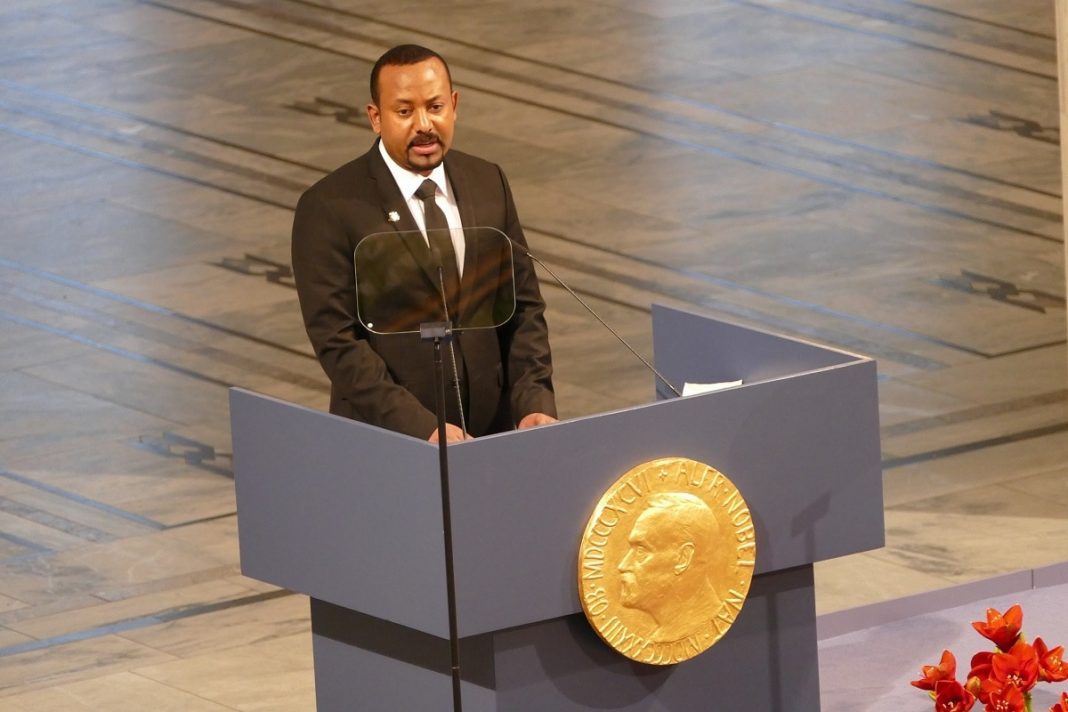Ethiopian Prime Minister Abiy Ahmed traveled to Washington to attend U.S. President Joe Biden’s U.S.-Africa Leaders Summit in December. Abiy was invited even though in November 2020, he launched a full-scale assault on Tigray after that region defied his efforts to delay elections. Abiy’s forces arrested Tigrayans in Addis Ababa and deliberately starved the Tigray region, killing hundreds of thousands.
Abiy apologists justify his actions by arguing the Tigray Defense Forces fired the first shot by attacking an Ethiopian army base in Tigray, but this is disingenuous. Not only was the Ethiopian assault planned in advance, but collective punishment against civilians is also illegal under any reading of law.
Simply put, Abiy is party to genocide and belongs in an international docket, not in the White House.
A Strange Ignorance
Don’t expect USAID administrator Samantha Power to speak up, however.
While she rode a lament about American unwillingness to confront genocide to office, she has since seen fit to ignore the lessons of her earlier work.
Earlier this year, Power flew to Addis Ababa to plead with Abiy to stop the slaughter, but he ignored her. For Biden to invite Abiy to Washington should humiliate Power, but her desire for power trumps moral clarity.
Then again, this is nothing new. She bonded with then-Senator Barack Obama over her book. But when Obama as president initially refused to take action in Syria, and decided to stand down when the Islamic State’s 2014 rise enabled mass murder and the Yezidi genocide, Power stood aside.
Unfortunately, the Ethiopia conflict is not over. Abiy has essentially transformed the once-great nation of Ethiopia into a satrapy of Eritrea. Ethiopian troops may be quiet in Tigray, but Eritrea continues its rape and pillage in the region. By fanning ethnic animosities, Abiy also opened a Pandora’s Box, with Oromia now bearing the brunt of the Ethiopian war machine.
The prospect of genocide, however, is not limited to Ethiopia. African officials were shocked at Power’s lack of preparation and understanding of events during the USAID Administrator’s recent swing through the continent. Take, for example, the situation in eastern Democratic Republic of Congo. Ignorance has a cost. Power’s superficiality — and that of Secretary of State Antony Blinken — theatens through sheer incompetence to amplify ethnic distrust into genocide.
Remembering Africa’s Past
Power should revisit the genocide memorial and museum in Kigali, Rwanda. As it charts the run-up to the 1994 anti-Tutsi Genocide, it shows how ethnic discord grew out of an imported ideology that labeled Hutus as indigenous and Tutsis as invaders who did not belong in Rwanda. Hutu génocidaires used this notion to justify their slaughter.
Unfortunately, history repeats. DRC President Félix Tshisekedi once partnered with Rwanda to ensure security along their frontier and work jointly to develop resources and trade. Last year, however, Tshisekedi chose to play the ethnic card in order to distract from his own failings and advance his electoral prospects in Kinshasa. It was a blatantly racist strategy. As Genocide Watch notes, today “Banyamulenge, Hema, and other Congolese minorities are targeted by the same ‘indigenous vs. invader’ ideology that drove the genocide in Rwanda.” This has not stopped Biden from inviting Tshisekedi to the White House, nor has it motivated Power to speak up.
For Blinken and Power to now accuse Rwanda of supporting the M23 militia in the region is to ignore the agency of Tutsis in the DRC who see genocide on the horizon fanned by Tshisekedi and encouraged by the Biden administration’s moral equivalence. It is analogous to ignoring the rise of the Islamic State, but then castigating Yezidis for defending themselves.
Who could have predicted that the leading voice against genocide would so quickly celebrate with its executioners? Perhaps the lesson here is that Power corrupts.
By Michael Rubin
19fortyfive





























